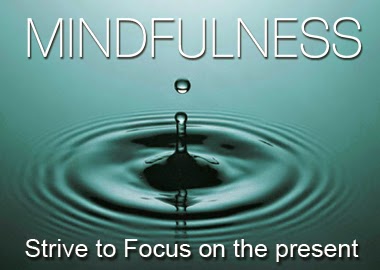- Research discovered donating blood can help reduce the risk of heart attacks and cancer
- It has this affect by reducing iron levels which can thicken blood and increase free-radical damage
- Beneficial for weight watchers too as people burn 650 calories with every pint donated
8 Benefits of Donating Blood That You May Not Know About
1. Blood donation is good for your health.
It reduces the amount of iron in the body and reduces the risk of heart disease. According to studies published in the American Journal of Epidemiology, blood donors are 88% less likely to suffer a heart attack. This is simply because when someone gives blood, iron is being removed from their system, which can significantly cut the risk of heart disease.
2. Blood donation has also been shown to lower the risk of cancer.
Consistent blood donation is associated with lowered risks for cancers including liver, lung, colon, stomach and throat cancers. Who wouldn’t like to lower their risk of cancer if given the opportunity?
3. When someone donates blood, they get a free health check-up.
Blood donors receive a mini-physical and are told about their blood pressure levels as well as their cholesterol levels; two important factors in maintaining health. If a technician taking a patients levels notices they are high, they will let the patient know that they may need to get checked out by a physician. People who get their blood pressure and cholesterol checked regularly can find out about a health issue sooner, which could make all the difference in their well-being.
4. Along with a health check-up, the donor will get a free blood analysis and be notified of their blood type.
If a patient were to go to a doctor’s office to find out their blood type or get a blood analysis it would not be free, however, as a blood donor it’s completely free to the patient. Blood that is donated is checked for several health factors to make sure it can be used for donation. Some of the factors that are checked include HIV, syphilis and hepatitis. If blood contains a health factor that would not allow it to be donated, it is discarded and the patient is notified of the issue.
5. There are some fun benefits of donating blood that you might not have known about, like getting some free stuff!
During donation, donors are given free snacks, juice, and soda. Sometimes there is even free swag such as free t-shirts, stickers and promotional items. Blood donors also get an awesome colored wrap of their choice to go around the arm that blood was taken from.
6. Replenishing blood can be good for the body.
Donation allows for the replenishment of the donor’s blood supply, which helps the donor’s body stay healthy, function more efficiently, and work productively.
7. Donating blood is the fastest way to lose a pound of weight.
8. Blood donors get to relax for an hour or so and lay back in a chair.
It has to be one of the easiest ways to give something back to your community and potentially help other people. Speaking of which, it feels great to donate blood knowing that with one blood donation you could help three people and could even be helping yourself if you are ever in need of blood. Plus, you can score points with co-workers, friends and family and make them be nice to you for the day, because your sticker says they have to be!
Blood vs. Plasma Difference
Blood is the main bodily fluid and responsible for transporting important nutrients, oxygen, carbon dioxide and waste products to and away from the cells, whereas plasma is the yellow liquid component of blood and constitutes 55% of the total blood volume.
Comparison chart
It reduces the amount of iron in the body and reduces the risk of heart disease. According to studies published in the American Journal of Epidemiology, blood donors are 88% less likely to suffer a heart attack. This is simply because when someone gives blood, iron is being removed from their system, which can significantly cut the risk of heart disease.
2. Blood donation has also been shown to lower the risk of cancer.
Consistent blood donation is associated with lowered risks for cancers including liver, lung, colon, stomach and throat cancers. Who wouldn’t like to lower their risk of cancer if given the opportunity?
3. When someone donates blood, they get a free health check-up.
Blood donors receive a mini-physical and are told about their blood pressure levels as well as their cholesterol levels; two important factors in maintaining health. If a technician taking a patients levels notices they are high, they will let the patient know that they may need to get checked out by a physician. People who get their blood pressure and cholesterol checked regularly can find out about a health issue sooner, which could make all the difference in their well-being.
4. Along with a health check-up, the donor will get a free blood analysis and be notified of their blood type.
If a patient were to go to a doctor’s office to find out their blood type or get a blood analysis it would not be free, however, as a blood donor it’s completely free to the patient. Blood that is donated is checked for several health factors to make sure it can be used for donation. Some of the factors that are checked include HIV, syphilis and hepatitis. If blood contains a health factor that would not allow it to be donated, it is discarded and the patient is notified of the issue.
5. There are some fun benefits of donating blood that you might not have known about, like getting some free stuff!
During donation, donors are given free snacks, juice, and soda. Sometimes there is even free swag such as free t-shirts, stickers and promotional items. Blood donors also get an awesome colored wrap of their choice to go around the arm that blood was taken from.
6. Replenishing blood can be good for the body.
Donation allows for the replenishment of the donor’s blood supply, which helps the donor’s body stay healthy, function more efficiently, and work productively.
7. Donating blood is the fastest way to lose a pound of weight.
8. Blood donors get to relax for an hour or so and lay back in a chair.
It has to be one of the easiest ways to give something back to your community and potentially help other people. Speaking of which, it feels great to donate blood knowing that with one blood donation you could help three people and could even be helping yourself if you are ever in need of blood. Plus, you can score points with co-workers, friends and family and make them be nice to you for the day, because your sticker says they have to be!
Blood vs. Plasma Difference
Blood is the main bodily fluid and responsible for transporting important nutrients, oxygen, carbon dioxide and waste products to and away from the cells, whereas plasma is the yellow liquid component of blood and constitutes 55% of the total blood volume.
Comparison chart
Composition of blood vs plasma
Blood is composed of plasma and different kinds of cells- red blood cells (erythrocytes), white blood cells (leukocytes), and thromobocytes (platelets). The density of blood (1060 kg/m3) is very close to that of pure water (1000 kg/m3).
Plasma contains water (90%), proteins (albumin, fibrinogen and globulins), nutrients (glucose, fatty acids, amino acids), waste products (urea, uric acid, lactic acid, creatinine), clotting factors, minerals, immunoglobulins, hormones and carbon dioxide, i.e. all the components of blood except the red, white blood cells and thrombocytes. Components can either be dissolved (if soluble) or remain bound to proteins (if insoluble). Plasma has the density of 1025 kg/m3.
Differences in Function
Blood performs very important functions in the body.
The main functions are listed below:
Plasma is the fluid component of blood and thus performs all the same functions.
- Supply of oxygen (which is bound to haemoglobin in the red blood cells) and other important nutrients to tissues.
- Removal of carbon dioxide and other waste products away from the tissues.
- Circulation of white blood cells important for immunological functions.
- Clotting at sites of injuries or cuts.
- Regulation of temperature and pH of the body.
Plasma is the fluid component of blood and thus performs all the same functions.
It specifically helps in:
Storage and Transport
Blood for transfusion can be stored in blood banks.
- Maintaining the electrolytes and fluid balance of the blood.
- Serves as the protein reserve for the body.
- Aids in clotting.
- Immune functions.
- Transport of carbon dioxide, essential nutrients (organic, inorganic components and plasma proteins), hormones (bound to plasma proteins), waste (urea, uric acid and creatinine) and other substances (example drugs and alcohol) to and from the tissues.
Storage and Transport
Blood for transfusion can be stored in blood banks.
Blood products such as platelets, blood plasma and coagulation factors can also be stored and administered intravenously.
Fresh frozen plasma can be store at -40C for up to 10 years.
Fresh frozen plasma can be store at -40C for up to 10 years.
It contains all the coagulation factors and other proteins present in the blood, and can be used to treat coagulopathies (clotting and bleeding disorders) and liver diseases.
Dried plasma was used during WWII, and provided for transfusions to soldiers in combat. This was replaced by serum albumin during the Korean War.
Article links:
Article links:
DAILY MAIL
DIFFEN
Communications contacts:
WHO Headquarters
Geneva, Switzerland
Telephone: +41 22 791 2222
E-mail: communications@who.int
DIFFEN
Communications contacts:
WHO Headquarters
Geneva, Switzerland
Telephone: +41 22 791 2222
E-mail: communications@who.int
Baxter Plasmazentrum Graz
Kontakt
NEUE Adresse:
Europaplatz 20
8020 Graz
Direkt beim Grazer Hauptbahnhof
Anfragen, Terminvereinbarungen unter:
Tel. 0316 / 339 331
Recommended by BUSINESS DOCTORS, GRAZ, AUSTRIA
BUSINESS DOCTORS NEWS!!
Gesund bleiben
Von der Arbeitsgesellschaft zur Dienstleistungsgesellschaft
Das sind Titel und Thema des 3. Symposiums, das von den Business Doctors im Rahmen des
„Europäischen Forums für generationengerechte und gesunde Arbeitswelten“
vom 16. bis zum 17 Oktober 2014
in der Friedensburg Schlaining abgehalten wird.
Top Referenten aus Wissenschaft, Wirtschaft und Politik setzen sich in Vorträgen und Workshops mit den durch diese kulturelle Revolution in unseren Arbeitswelten herbeigeführten Änderungen auseinander und geben Einblick in die neusten Erkenntnisse und Entwicklungen, insbesondere der Stress-und Burnout forschung, wie auch in die neuesten Methoden der Stress- und Burnoutprävention.
Erfolgreiche „Best Practice“ Beispiele runden das hochqualitative Programm ab.
Informationen und Anmeldungen unter office@business-doctors.at
::::::::::::::::::::

:::::::::::::::::::::::::::::::::::::::::::::::::::::::::
NEU!!!!
BUSINESS DOCTORS APP
IHR "STRESS & BURNOUT CHECK"
JETZT HIER - CLICK!!
DANKE!!
Informationen:
Zahlen, Daten und Fakten zu den berufsgruppenspezifischen Stress – und Burnoutstudien, Leistungseinbußen durch Stress, etc. sowie Infos zur BIS Business Intelligence Software mit dem Einsparungspotentialrechner sind unter www.business-doctors.at abrufbar.
Die Business Doctors Kostenfreie „Stress & Burnout Check“ APP für Android User ist im Google Play Store unter dem Suchbegriff „businessdoctors“ frei zum info-download.
Ihr Ansprechpartner:
Franz Daublebsky,
Tel. 0664 / 101 2333
Wichtiger Hinweis:
Diese Seite enthält nur allgemeine Hinweise und Sie kann einen Arztbesuch nicht ersetzen. Die Beantwortung individueller Fragen durch unsere Experten:
Email: office@business-doctors.at
Email: office@business-doctors.at
TWITTER... Follow @PreventBurnout




































